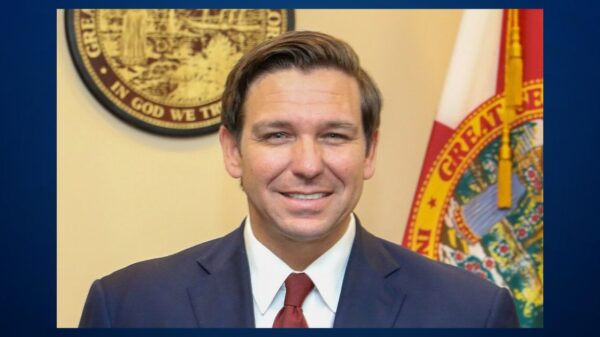The Florida delegation on Capitol Hill is once again pushing the “Restoring Resilient Reefs Act,” a proposal to update and reauthorize the “Coral Reef Conservation Act,” which expired 15 years ago,
Back in the summer of 2019, U.S. Sen. Marco Rubio, R-Fla., U.S. Sen. Rick Scott, R-Fla., and U.S. Rep. Darren Soto, D-Fla., joined with U.S. Sen. Brian Schatz, D-Hi., U.S. Sen. Mazi Hirono, D-Hi., and U.S. Rep. Jenniffer González-Colón, R-PR. to bring out the “Restoring Resilient Reefs Act” to reauthorize the old law. Other backers included U.S. Rep. Charlie Crist, D-Fla., U.S. Rep. Brian Mast, R-Fla., and U.S. Rep. Stephanie Murphy, D-Fla.
Rubio was the chief sponsor in the Senate while Soto introduced it in the House and the two men reintroduced the proposal this week. While the U.S. Senate passed the bill last month, the measure did not gain much traction in the U.S. House and failed to cross the finish line.
“The Coral Reef Conservation Act, which expired more than 15 years ago, was designed to promote the conservation of our nation’s reefs. In recent years, the decline in the nation’s coral reefs has only become more severe. The Restoring Resilient Reefs Act directs federal funding and technical assistance to states for the restoration and management of coral reef ecosystems, while incentivizing increased state and local investment in coral reef management capacity. The bill encourages innovative public-private Coral Reef Stewardship Partnerships among agencies, research centers, and community stakeholders; codifies and updates the U.S. Coral Reef Task Force; ensures that our national coral strategy is informed by a robust local stakeholder engagement process; and allows for emergency grants for coral disasters, among other measures,” Rubio’s office noted.
“I saw the devastated condition of our coral reefs firsthand when touring the Florida Keys National Marine Sanctuary, and I promised a comprehensive response,” Rubio said on Tuesday. “This important bipartisan bill will ensure federal agencies are partnering effectively with state and local governments, as well as the communities who rely on the vitality of these critical habitats. I thank my Senate colleagues for passing my bill last Congress, and I am hopeful that both the House and Senate can quickly approve this legislation so it can become law.”
“Our Florida coral reefs are a national treasure that contain part of the most diverse ecosystems on earth,” Soto said. “We’ve witnessed how the effects of climate change, overfishing, pollution and development have threatened the vitality of coral reefs around our coasts. Protecting our environment, specifically preserving the precious habitats for marine life, should not have an expiration date. That’s why this bipartisan, bicameral legislation is key to reauthorizing existing federal programs and continuing the desperately needed programs halting the deterioration of coral reefs. Our Florida way of life depends on the health of our environment.”
Many of the same members of Congress that backed the bill before continue to support it, including in the Florida delegation.
“During my time as governor of Florida, we worked to increase investments in our environment by $1 billion to preserve and protect our natural resources,” Scott said. “I’m proud to join Senators Rubio, Hirono and Schatz to reintroduce the Restoring Resilient Reefs Act, which will build on our efforts and help restore and protect our coral reef ecosystems. I will continue working to make sure future generations can enjoy all that Florida has to offer.”
“Coral reefs play a critical role in protecting coastal communities from hurricanes and devastating flooding,” said Mast. “Restoring and conserving these reefs will also promote healthier ecosystems, protect aquatic habitats and support our marine life. That’s what this bill is all about.”
When first introduced, the proposal garnered the support of Gov. Ron DeSantis and other state leaders.
“Florida depends on our coral reefs. Not only are they essential to the health of our marine ecosystem, they are vital to coastal resiliency, stand as the first line of defense against storm surge in Southeast Florida and play a key role in our tourism economy,” said DeSantis in support of the 2019 push. “I applaud Senator Rubio’s advocacy for this important resource and look forward to the opportunity this support would provide to help preserve, sustain and restore the condition of Florida’s coral reefs.”
Rubio’s bill was sent to the U.S. Senate Commerce, Science, and Transportation Committee this week. Soto’s bill was sent to the U.S. House Natural Resources Committee.
Reach Kevin Derby at kevin.derby@floridadaily.com.




















